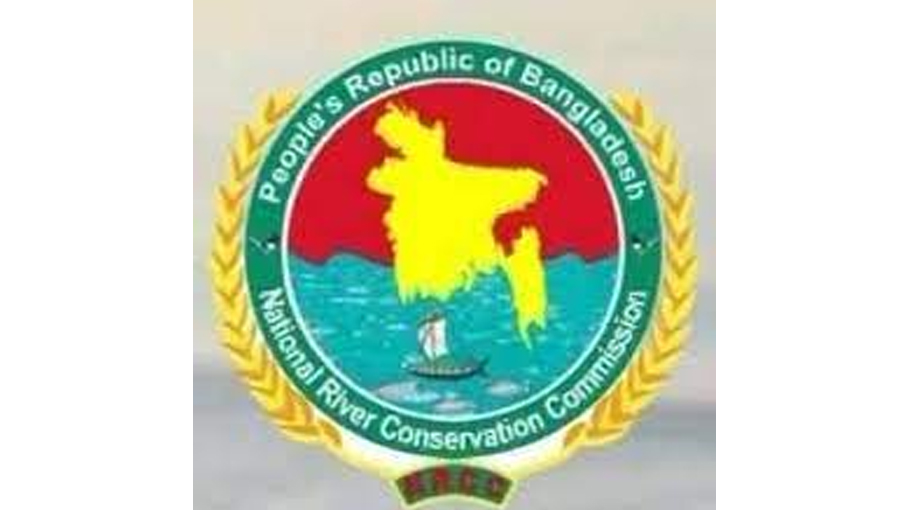Fresh law demanded to make NRCC effective

The National River Conservation Commission (NRCC), established in 2014 following a High Court order, has not yet become an independent and strengthened institution although the court declared the commission as the guardian for the rivers of Bangladesh.
River and environmental activists and experts on water and river said that an independent commission is a must to save rivers, reservoirs and all other water sources. That is why enactment of a fresh law is now necessary.
Alongside them, the High Court in a judgement in 2019 ordered the government to empower the NRCC and enact a fresh NRCC law to incorporate stringent provisions for the offences regarding rivers and other water sources.
Against this backdrop, the draft of ‘The National River Conservation Commission Act, 2020’ was prepared by the NRCC. One of the objectives of the draft law is to ensure the independence of NRCC. The fresh law was also designed to formulate a tightened law and shun the loopholes in old laws.
The spirit of the HC judgement and demand of river and environmental activists are largely reflected in the draft of the fresh NRCC law,
said Dr Muzibur Rahman Howlader, just former chairman of NRCC. The draft was prepared during his tenure under his leadership.
The draft law has been gathering dust for over two years. Many river and environmental activists are blaming the lack of goodwill of the authorities concerned. “While the Parliament has passed many bills during the past two years, it is unfortunate that the draft is pending till now,” said Muhammad Anowarul Hoque, secretary general of Save Our Sea.
“We think that there is a lack of goodwill to turn the NRCC into an independent and strengthened institution. For this reason, the fresh law is not being enacted although its draft was prepared two years ago,” said Sharif Jamil, general secretary of Bangladesh Poribesh Andolon (BAPA).
He called upon the government to enact the fresh law as soon as possible.
When asked about the latest condition, Dr Manjur Ahmed Choudhury, chairman of NRCC, on Tuesday told Bangladesh Post that the draft law is now in the Shipping Ministry. “The process has not progressed much yet. We will write a letter to the ministry and other offices concerned for expediting the process of enactment of the law,” he added.
Experts said that the government should not delay in this regard. “The draft NRCC law should not be stuck in the ministry. The Bill should be placed in the Parliament as soon as possible after vetting by the law ministry and approval of the Cabinet,” said Dr Muzibur Rahman Howlader.
The former NRCC chairman said that a few ministries and many other institutions are involved in river management and they did not even want the commission to be formed in the first place. The NRCC was formed out of their failure at the intervention of the High Court.
He further said that rivers are the vital force of the country’s development. The economy, ecosystem and development of Bangladesh depend on rivers. If the rivers can’t be saved, the country’s overall development will be hampered. The NRCC must be empowered to save the rivers.
Talking to Bangladesh Post, Dr Muzibur Rahman Howlader, however, said that the river commission identified the areas and occupants of the rivers across the country in 2018-19. Now the local administration should evict the occupants.
Sharif Jamil of BAPA said that enactment of fresh law is a must to make the NRCC a stronger and more independent entity capable of saving rivers. The draft of the fresh NRCC law was prepared following court order. It would be a tantamount to contempt of court if the proposed law is not enacted soon, he added.
Echoing the same as Sharif Jamil, Muhammad Anowarul Hoque of Save Our Sea said that the river commission must be empowered and independent.
The NRCC was established following enactment of the National River Conservation Commission Act, 2013 as per the High Court order that was issued in 2009.
In a landmark judgement of the High Court on February 3 in 2019, the NRCC is declared ‘in loco parentis’ for the rivers of Bangladesh, to protect and conserve them, and prevent pollution and encroachment. In that judgement, the High Court issued 17 major directives for addressing the water pollution and encroachment of rivers and other water bodies.
Following the court order, the NRCC prepared the draft of a fresh NRCC Act, incorporating provisions to address the increasing concerns of river encroachment and pollution. This draft act is supposed to replace the 2013 law, which does not give the commission any power to take action against the offenders. The commission can just make recommendations under the existing law.
The proposed fresh NRCC law will cover all the rivers, reservoirs, water bodies, haors, wetlands, canals, seashores, fountains, lakes and all water sources of Bangladesh and bring them under the NRCC.
According to the proposed law, each division will have one or more special courts called ‘River Conservation Tribunal’, which will be linked to NRCC. All matters related to rivers and reservoirs will be judged in the tribunal. Any aggrieved person can file a case to the court.
Punishment for causing death to rivers, encroachment and pollution was mentioned in the proposed law. If any government official illegally allocates river places and shores to someone’s name, he will also be punished as per the law.
The proposed law empowers the NRCC authorities over arrest. Educational institutions are directed to conduct classes on the importance of rivers and the schools are directed to conduct field-visits to rivers in their respective areas. Public representatives’ roles are also mentioned, while owners of industries and factories are directed to properly educate their staff on rivers and their significance. These provisions echoed the directions of the High Court’s verdict.



